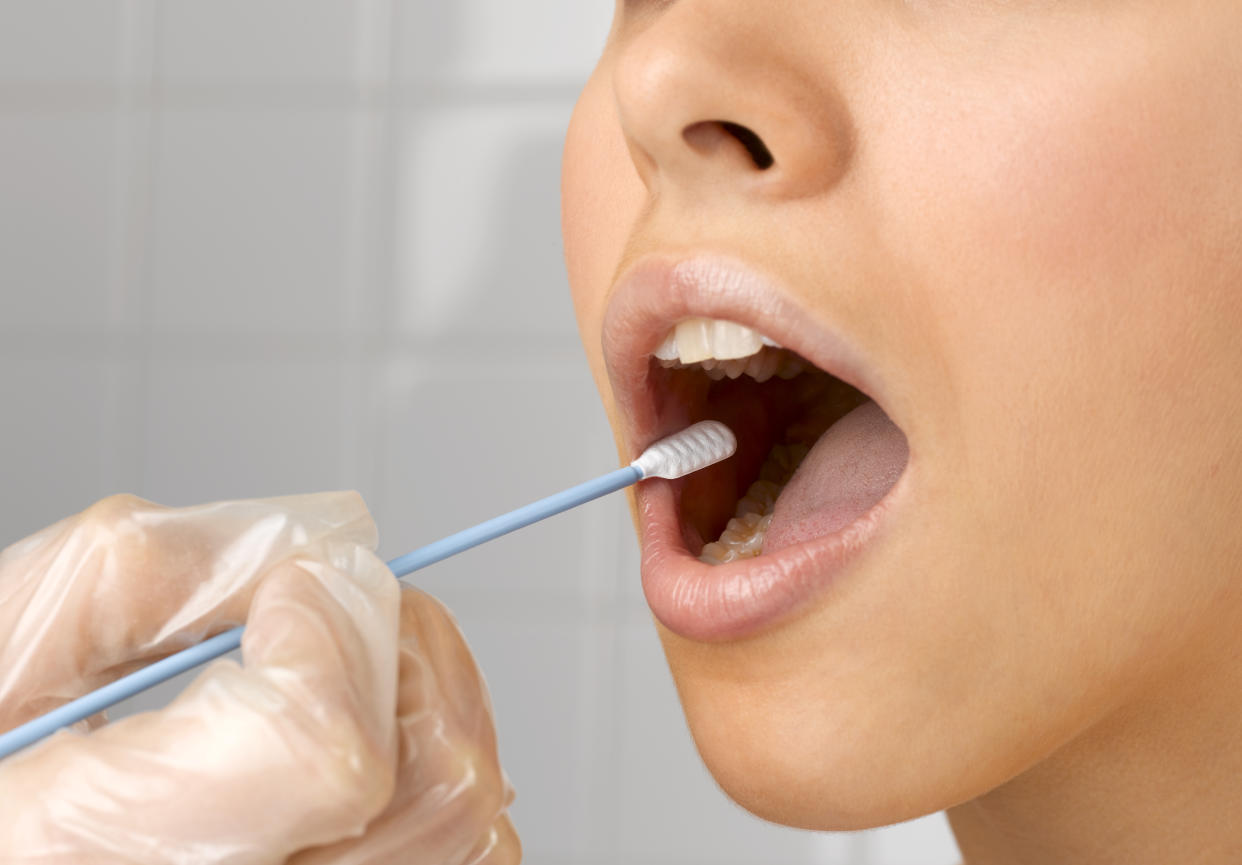Saliva test for COVID-19 may be just as good as a nasal swab: Study

The nasopharyngeal swab has been considered the gold standard in testing for COVID-19, but there’s a new, more comfortable option that may be just as effective.
New research published in the New England Journal of Medicine found that a saliva test developed at Yale University may be at least as effective as nasal swabs in detecting SARS-CoV-2, the virus that causes COVID-19. The test, which is called SalivaDirect, has been used by the NBA to test players and staff this season. The Food and Drug Administration (FDA) issued emergency use authorization for the SalivaDirect in mid-August.
For the study, researchers tested 70 patients at Yale-New Haven Hospital who had COVID-19 that was confirmed with a nasopharyngeal swab. At one to five days after their diagnosis, 81 percent of the saliva samples were positive for the virus, compared with 71 percent of the nasal swabs.
Six to 10 days after diagnosis, 76 percent of the saliva tests were positive, while just 65 percent of the nasal swabs were positive. But 41 percent of the saliva samples tested positive for the virus on day 11, while 50 percent of the nasal swabs were positive.
The researchers also used the saliva tests on 495 health-care workers who had no symptoms of COVID-19. Of those, 13 tested positive for the virus through the saliva test. Nine of those 13 also underwent a nasopharyngeal swab, and seven of those tested positive. The original 13 positives were eventually confirmed with later nasal swabs. “Given the growing need for testing, our findings provide support for the potential of saliva specimens in the diagnosis of SARS-CoV-2 infection,” the study authors wrote.
While the use of saliva tests to detect COVID-19 isn’t new, this particular test has one less step in processing that may makes it more efficient than other tests, Dr. Amesh A. Adalja, senior scholar at the Johns Hopkins Center for Health Security, tells Yahoo Life. “The diagnostic testing process for the Yale test doesn’t require chemicals called reagents,” he explains. “These chemicals have been in short supply.”
While this isn’t as fast as a rapid test that can be done in a doctor’s office, it’s a step toward a simpler testing process, Adalja says. “This is heading that way, but it’s not all the way yet,” he says. “It can improve testing and remove some of the constraints.”
But Dr. William Schaffner, an infectious disease specialist and professor at the Vanderbilt University School of Medicine, tells Yahoo Life that this test is a “huge help” in testing for COVID-19. Among other things, he says, it may help people feel more comfortable with being tested. “It’s certainly less of an assault than the nasopharyngeal swab. That can feel like you’re being attacked,” he says.
Still, SalivaDirect isn’t perfect. While the statistics for accuracy are on par with a nasopharyngeal swab, Schaffner points out that they still missed about 20 percent of positive cases in the NEJM study. He’s also concerned that this test requires laboratory testing, which can slow down results. “We need labs to process these tests, and that could easily be a chokepoint, as it has always been,” Schaffner says. “But the more tests we have, the better.”
“We can’t just test our way out of COVID-19, but testing is absolutely fundamental as part of the strategy to fight this virus,” Schaffner says.
While the SalivaDirect test only recently received its emergency use authorization, Adalja expects that it will “start to trickle out” at medical centers soon.
For the latest coronavirus news and updates, follow along at https://news.yahoo.com/coronavirus. According to experts, people over 60 and those who are immunocompromised continue to be the most at risk. If you have questions, please reference the CDC’s and WHO’s resource guides.
How to maintain your physical and mental health during the pandemic
Taking care of a loved one with COVID-19? Here’s how to stay healthy
Q&A with Dr. Kavita Patel: How to keep your family safe and maintain your mental health
Read more from Yahoo Life:
What is the Benadryl challenge? Why TikTok users, toxicologists are warning against dangerous trend
Women may be feeling the ramifications of pandemic for ‘decades to come’
‘I fear that I will never be the same again’: Here’s what it’s really like to be a COVID long-hauler
Want lifestyle and wellness news delivered to your inbox? Sign up here for Yahoo Life’s newsletter.

